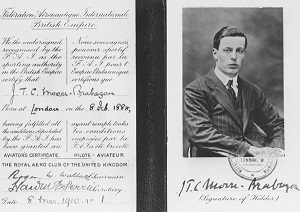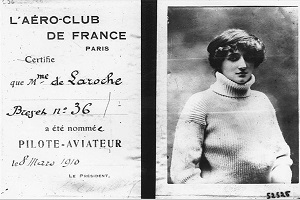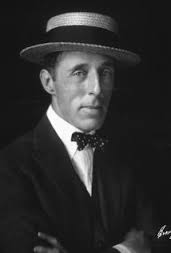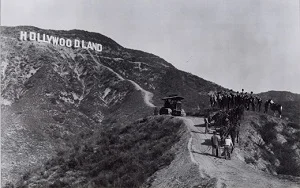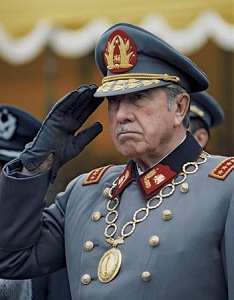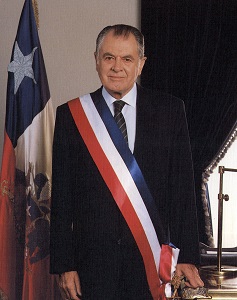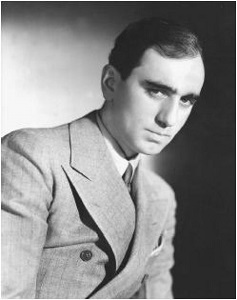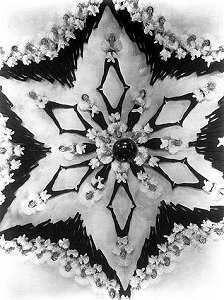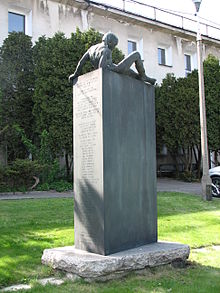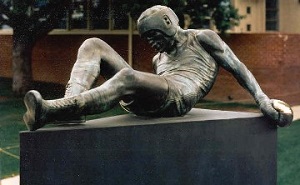The Sunday Section: This Week in History - March 08-14
March 08
1702 – Queen Anne accedes to the British throne following the death of her brother-in-law, William III, in a riding accident.
Queen Anne
1790 – France has voted to continue slavery in the colonies.
1906 – The ‘Blue Book’, published today, reveals that it is now theoretically possible to travel around the world without ever leaving the dominions of Great Britain. The book contains the results of a statistical survey and census of the Empire, which covers 12 million square miles.
1910 – The first pilot’s licences are granted to a British man – JTC Moore Brabazon – and a French woman – Mlle Elise Deroche.
JTC Moore Brabazon Mlle Elise Deroche
1917 – Food shortages have provoked widespread street demonstrations in Petrograd, but, for the first time, the troops of Tsar Nicholas II have refused to open fire on the crowds or suppress the uprising. The army, having suffered gross casualties on the German front, seems to be more for the people now and not the increasingly isolated Tsar.
1952 – An artificial heart is used for the first time on a patient. It kept the 41-year-old man alive for 80 minutes.
1971 – Joe Frazier has beat Muhammad Ali tonight over 15 rounds in a world heavyweight title fight, which was televised worldwide. The fight grossed an estimated $20 million.
Frazier knocks Ali down in the 15th round
1989 – Chinese authorities have today declared martial law in Tibet following the massacre of demonstrators in Lhasa this week.
1989 – Seven years after rumours of gross mismanagement of the Vatican’s financial affairs came to light, the Vatican has today stripped Archbishop Paul Marcinkus of command of Ambrosiana, its loss-making bank.
1990 – Admiral John Poindexter, a former National Security Adviser, has today gone on trial on charges of conspiracy, obstructing Congress and lying to the nation, all part of the Iran-Contra affair.
Admiral John Poindexter
09
1562 – In Naples, kissing in public is made punishable by death.
1796 – Napoleon Bonaparte has today married Joséphine. A widow since her first husband was guillotined in 1794, Joséphine sought the marriage with Napoleon to protect her reputation after their affair became public.
Joséphine
1831 – The French Foreign Legion is founded to serve in France’s African colonies.
French Foreign Legion on the Champs de Mars in Paris 1836
1864 – General Ulysses Grant is made General-in-Chief of the Union Forces in the Civil War.
General Ulysses Grant
1888 – Death of Kaiser Wilhelm I of Prussia.
1923 – Vladimir Ilyich Lenin suffers a massive stroke and retires from leadership.
1937 – George Orwell’s book, ‘The Road to Wigan Pier’, about the effects of the Depression in northern England, is published.
1946 – Steel barriers collapse at Bolton Wanderers’ football ground, killing 33 fans.
Burnden Park, Bolton
1967 – The daughter of Joseph Stalin, Svetlana Alliluyeva, defects to the West.
Svetlana Alliluyeva
1990 – Dozens of protestors have been arrested in south London as riot police broke up violent demonstrations against the new poll tax.
Poll tax riots
10
1661 – Death of Cardinal Jules Mazarin, chief adviser to the regent Anne of Austria, mother of King Louis XIV.
Cardinal Jules Mazarin
1848 – As part of the spoils of victory in the war with Mexico, the United States today gains control of California, New Mexico and parts of Texas but has to pay their Spanish-speaking settlers $15 million compensation.
1910 – Having found the ideal location to shoot his film, ‘In Old California’, director DW Griffith then had to battle with his bosses on the East Coast to rent the barn in the village where some of the action was shot. Griffith wanted to use the place, Hollywood, because of its near-perfect natural light.
DW Griffith Filming 'In Old California'
1969 – James Earl Ray pleads guilty to the murder of Martin Luther King, and is sentenced to 99 years in jail.
James Earl Ray
1974 – A Japanese soldier was today found hiding on Lubang Island in the Philippines. Believing that the Second World War was still being fought, Hiroo Onoda was waiting to be relieved by his own forces.
Hiroo Onoda (centre) leaving Lubang Island (AFP)
1981 – Death of the British intelligence chief, Sir Maurice Oldfield, thought to be the model of ‘M’ in the James Bond novels.
Sir Maurice Oldfield
1986 – Death of Ray Milland, aged 79, the Welsh-born actor whose films included ‘Beau Geste’ and ‘Dial M for Murder’.
Ray Milland
1988 – Death of Andy Gibb, the youngest of the Gibb brothers of Bee Gees fame, aged 30, of myocarditis, a heart condition, amplified by drug use (thanks to Marita for the correction)
Andy Gibb
1990 – Farzad Bazoft, a 31-year-old Iranian-born reporter working for the ‘Observer’, has been sentenced to death by an Iraqi military court. He had confessed to spying charges after months in detention. Margaret Thatcher has made a personal appeal to Saddam Hussein, and journalists have begun a vigil outside the Iraqi embassy in London, but there seems little hope that Saddam Hussein will put off the hanging.
Farzad Bazoft
11
1682 – The Royal Hospital in Chelsea is founded to care for soldiers.
Royal Hospital Chelsea
1702 – The first English daily paper, the ‘Daily Courant’, is published.
1858 – After 10 months of conflict, Britain has finally put down the Indian Mutiny. From now on, areas under British rule will be treated as vassal states, and the Indian army will be more tightly managed. British insensitivity to Indian customs sparked the revolt when sepoys (Indian soldiers) were expected to handle new rifle cartridges; they refused, believing they were lubricated with animal fat that was either holy to Hindus or unclean to Muslims.
Storming of the Kashmir Gate during the Siege of Delhi 1857
1941 – American Congress today approved the Lend-Lease Act, which will allow Britain, China, the USSR, and other friendly powers to receive munitions, tanks, ships and other weapons on preferential credit terms. This has allowed President Franklin D. Roosevelt to apply US economic muscle without declaring war.
1945 – In the biggest-ever daylight bombing raid, about 1,000 Allied bombers have destroyed the vast Krupps factory in Germany.
Krupps factory destroyed
1955 – Death of Sir Alexander Fleming, Scottish bacteriologist who discovered penicillin.
1985 – Mikhail Sergeyevich Gorbachev is the new general secretary of the Soviet Union; at 54, he is the youngest leader to take office in Moscow in the history of Soviet Communism.
1985 – Harrods has been bought by the Fayed brothers, wealthy cotton brokers from Cairo.
1988 – The Bank of England pound note is no longer legal tender, and has been replaced by the pound coin.
1990 – After 17 years, Chile is free from the violent repression it suffered under General Augusto Pinochet. Today sees the start of the democratic era of Patricio Aylwin, the 71-year-old lawyer who soundly beat Pinochet’s nominee, Hernan Buchi.
Augusto Pinochet Patricio Aylwin
12
604AD – Death of St Gregory, the pope who initiated the Anglo-Saxons’ conversion to Christianity.
1507 – Death of Cesare Borgia at the siege of Viana in Navarre.
1789 – The US Post Office is established.
1881 – Due to its strategic importance, Tunisia is made a protectorate of France.
1913 – Canberra is made the capital of Australia.
1930 – Mahatma Gandhi has today started a mass protest against British rule, choosing salt as his weapon. The Raj insists it has a right to impose a tax on its monopoly of the salt trade. Gandhi is planning on walking about 300 miles from his home in Ahmedabad to the sea at Jalalpur to make salt with his own hands, and has said he was “prepared for the worst, even for death, in defiance of the salt tax”. About 100 followers are already with him, with more expected to join him on his journey. The British administration has ordered the destruction of the salt pans on the coast, and has stated that Gandhi will not reach the sea.
Gandhi on the salt march
1938 – Austria was made a German province today as Adolf Hitler’s troops marched into the country. Austrians, thrilled over the Anschluss (annexation), greeted the troops with cheers, and are planning a huge welcome for Hitler.
Anschluss
1947 – In a policy he is calling the Truman Doctrine, President Truman is urging Congress to mobilise in a global crusade against expanding communism. He is putting the Cold War firmly on the top of the political agenda. The term ‘Cold War’ was borrowed by financier Bernard Baruch from columnist Herbert Bayard Swope to describe the power struggle between Washington and Moscow.
Truman delivers Truman Doctrine speech before Congress
1955 – Death of Charlie ‘The Bird’ Parker, aged 35, possibly the greatest jazz musician of all time.
Charlie Parker
13
1701 – Dutch settlers at the Cape of Good Hope today had more than 40 cattle taken by a band of Griqua tribesmen. This follows last month’s raids on more than 300 farms which lost over 200 cattle. These incidents are part of life here since the colony was founded about 50 years ago, when the local Khoisan natives became alarmed at foreign intrusions on their land. In 1659, the Khoisan clans declared war on the colony. In retaliation to the cattle raids, the Dutch imprisoned any natives they caught. As white farmers continue to expand further into South Africa, the intermittent warfare will only grow worse.
1781 – William Herschel, a German stargazer who is an organist by profession, has discovered a new planet after noticing that one of the stars in the constellation of Gemini had the characteristics of a planet. This new planet, even further from the sun than Saturn, has yet to be named, but it is very likely to be called Uranus, after the Greek god of the sky.
William Herschel
1881 – Tsar Alexander II has been murdered by members of the ‘narodniki’ extremist organisation, a group of populist intellectuals. Two bombs were thrown at the Tsar in St Petersburg. While the first exploded harmlessly, the second one killed him. Ironically, he had finally signed a manifesto that would have created a national consultative assembly. However, the assassination will now postpone its implementation.
1900 – British forces under the command of Field Marshal Frederick Roberts have taken Blomfontein in the second Boer War.
Field Marshal Frederick Roberts ~ John Singer Sargent
1926 – Alan Cobham has completed a 16,000 mile London-Cape Town-London flight, thus establishing the first commercial air route across Africa.
Sir Alan Cobham
1977 – Death of Jan Patočka, the leader of the Charter 77 human rights movement in Czechoslovakia. He’d been held and interrogated by the police for 10 hours on 3 March, and had fallen ill on his release. The cause of his death was apoplexy.
Jan Patočka
1978 – Three South-Moluccan terrorists hold 70 people hostage in the province hall in Assen, Holland, demanding the release of 21 prisoners and free transport to the airport.
14
1492 – Queen Isabella of Castile has ordered the 150,000 Jews of Spain to convert to Christianity or leave. Rather than betray their faith, many of the Jews are planning to leave, but they have nowhere to go. Isabella and her husband, Ferdinand, both devout Catholics, have already forced the Arabs from Granada, and are now eager to do the same to the Jews.
Ferdinand and Isabella
1883 – Death of Karl Marx, in London.
Karl Marx (1882)
1891 – The first cross-Channel telephone cable is laid on the bed of the English Channel by the submarine ‘Monarch’.
The top and bottom bands read, respectively, 'Anglo-French Telephone Cable Submerged March 1891', and 'Sangatte Calais To St. Margarets Dover'
1900 – President William McKinley puts America on the Gold Standard, a monetary system whereby paper money is backed directly by the national gold reserves.
1932 – The inventor of the Kodak camera, George Eastman, commits suicide.
George Eastman
1953 – Nikita Krushchev becomes First Secretary of the Communist Party of the Soviet Union.
1964 – Jack Ruby has been found guilty of killing Lee Harvey Oswald. He shot Oswald at close range when the latter was being transferred from Dallas police headquarters to prison. Ruby’s simple explanation was, “I did it for Jackie Kennedy”.
Jack Ruby about to shoot Lee Harvey Oswald
1966 – Britain’s first non-white policeman, Muhammad Yusuf, is sworn in as a member of Coventry police force.
1976 – Death of Busby Berkeley, choreographer who was responsible for Hollywood’s musical extravaganzas, especially of the 1930s.
Busby Berkeley Typical Berkeley arrangement from 'Dames', 1934
1980 – A Polish airlines flight, from New York to Warsaw, has crashed killing all 87 on board, including 22 members of a US amateur boxing team.
Memorial to the crash victims Memorial detail

